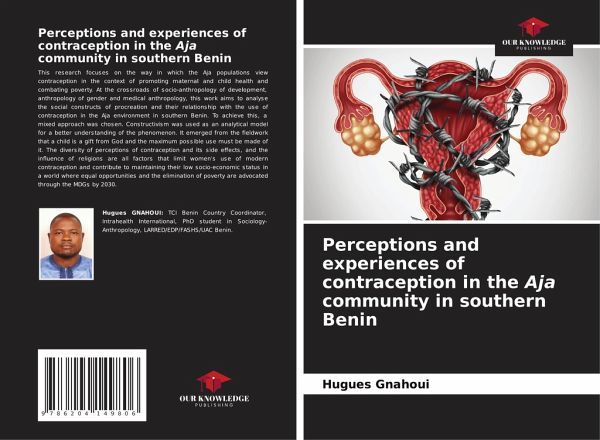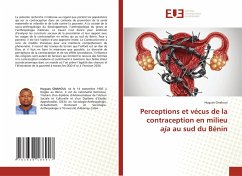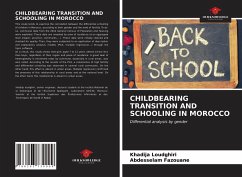
Perceptions and experiences of contraception in the Aja community in southern Benin
Versandkostenfrei!
Versandfertig in 6-10 Tagen
36,99 €
inkl. MwSt.

PAYBACK Punkte
18 °P sammeln!
This research focuses on the way in which the Aja populations view contraception in the context of promoting maternal and child health and combating poverty. At the crossroads of socio-anthropology of development, anthropology of gender and medical anthropology, this work aims to analyse the social constructs of procreation and their relationship with the use of contraception in the Aja environment in southern Benin. To achieve this, a mixed approach was chosen. Constructivism was used as an analytical model for a better understanding of the phenomenon. It emerged from the fieldwork that a chi...
This research focuses on the way in which the Aja populations view contraception in the context of promoting maternal and child health and combating poverty. At the crossroads of socio-anthropology of development, anthropology of gender and medical anthropology, this work aims to analyse the social constructs of procreation and their relationship with the use of contraception in the Aja environment in southern Benin. To achieve this, a mixed approach was chosen. Constructivism was used as an analytical model for a better understanding of the phenomenon. It emerged from the fieldwork that a child is a gift from God and the maximum possible use must be made of it. The diversity of perceptions of contraception and its side effects, and the influence of religions are all factors that limit women's use of modern contraception and contribute to maintaining their low socio-economic status in a world where equal opportunities and the elimination of poverty are advocated through the MDGs by 2030.












